
Religion in politics
The contemporary politics of Pakistan’s right
Many punch above their weight using street power
In Pakistan, a reinvigorated right has taken many by surprise. The rapid mainstreaming of radical elements over a short span of time, attributed to myriad factors, has garnered worldwide attention. With an increasingly- assertive far right flexing its muscles, The Express Tribune looks into forces constituting the aforementioned end of the political spectrum.
Context
The right holds conservative opinions on policy issues. An ardent supporter of tradition and established order, liberal or revolutionary ideas invite extreme scepticism. The term right wing gained currency during the French Revolution to refer to those who supported the monarchist regime against the rebelling left-wing.
Globalisation of democracy and the unprecedented rise of liberal governments worldwide since the collapse of the former Soviet Union have changed the meaning of established power. Right-wing political parties are now increasingly viewed as legitimate political actors.
Considering the dismal electoral performance of right wing groups since Independence in 1947, disproportionate influence wielded by such entities on crucial policy decisions including legislation, education and foreign policy continues to polarise opinion. With many having perfected the art of punching above their weight using street power, the spectre of many a political heavyweight cowing into submission remains common.
Since the state launched a war against terror in 2001, the right was largely in retreat. In the aftermath of the 2008 general elections, some were marginalised post public denunciations of democracy. Pakistan’s radicals were also impacted by international events such as the 2011 Arab Spring that left much of the region divided along sectarian lines. Poor delivery, regular infighting and dubious alliances earlier compromised the right’s standing. Now, the converse appears to be true.
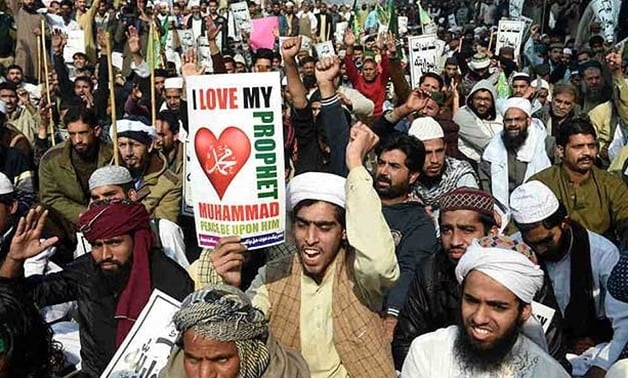
Jamaat-e-Islami
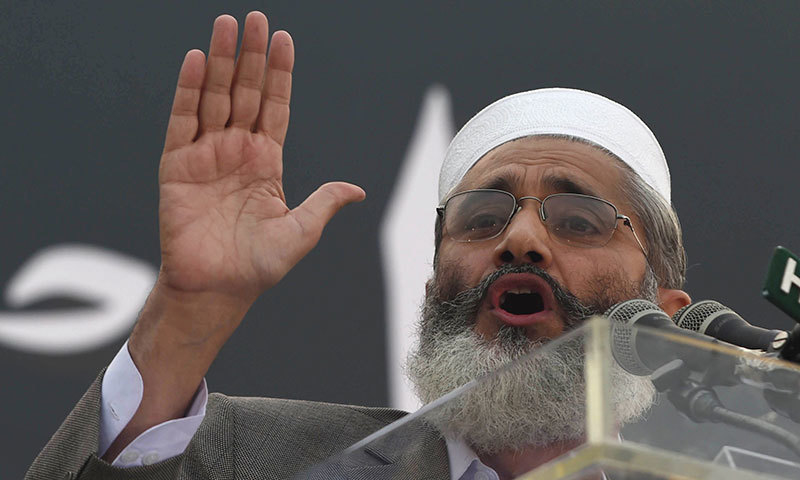
The JI was founded by ideologue Abu Ala Maududi in 1941. Initially opposed to the idea of Pakistan, the party now aspires to transform the nation into an ‘ideal’ Islamic state. While the JI accepts the Constitution, party leaders say it remains committed to reforming the system from within.
The party enjoys little popular support, except in some parts of Khyber- Pakhtunkhwa (K-P) and Karachi. In April 2013, the party unveiled a manifesto pledging to transform the nation into a ‘model Medina-like state’. The JI won four National Assembly seats in the 2013 elections.
In November the same year, the JI chief courted controversy after likening Tehreek-e-Taliban Pakistan chief Hakimullah Mehsud’s death in a drone strike to martyrdom. The JI stood by the remarks despite the statement drawing widespread flak. In a rare riposte, party general secretary Liaquat Baloch told newsmen the army had no right to comment on political developments.
The party’s erstwhile K-P amir Muhammad Ibrahim was part of a three-member committee constituted by the then Pakistan Muslim League-Nawaz (PML-N) government to conduct negotiations with the Taliban. The ill-starred initiative concluded with a full-fledged offensive being launched against the Taliban in 2014.
Islamia Jamiat Talba (IJT), the JI’s student wing, has resorted to violence many times over the last five years. The IJT boasts a strong presence across public universities and often takes to the streets against ‘western influence’. Individuals affiliated with the JI routinely target students engaging in ‘immoral’ activities like listening to music or mixing of the sexes.
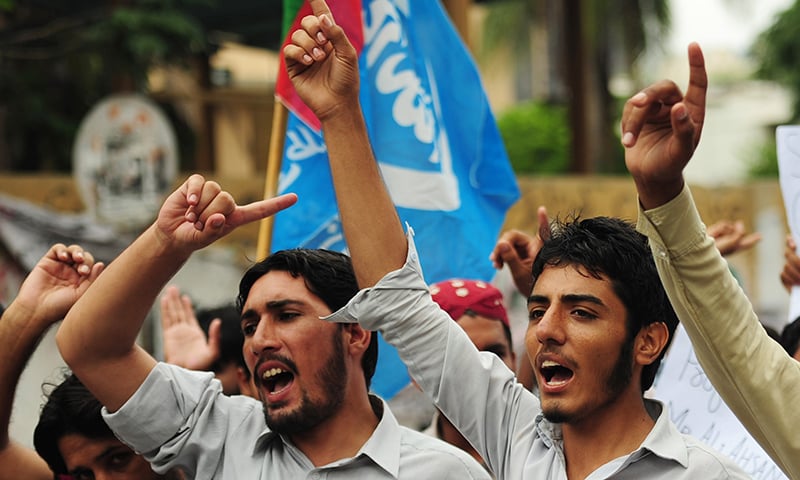
In 2017, former JI K-P amir Mushtaq Ahmed termed co-education ‘a ticking time-bomb’. Earlier, Punjab University teachers told The Express Tribune the IJT had a reputation of attacking both, students and teachers. An atmosphere of fear prevails at the varsity, they said.
In November 2013, the JI launched a social media wing to proliferate the message of Islam. The unit produces content to bring about ‘social change’. JI chief Sirajul Haq also has an official account on Twitter with 695,000 followers. Unlike his counterparts, Haq posts in Urdu. The party’s official Twitter account has 88,000 followers while its Facebook page is followed by 3.9 million people. In 2016, Facebook suspended official pages of JI and many of its members for twenty hours. The accounts were suspended as JI was highlighting Indian atrocities in held- Kashmir, according to a party statement. By 2017, the party reportedly boasted an elaborate social media setup engaged in monitoring the press, internet and broadcast feeds nationwide. Party women, working from home, monitor media too. Over 500 people were engaged in just covering annual party gatherings, a leader claimed.
Jamiat Ulema-e-Islam (Fazl)
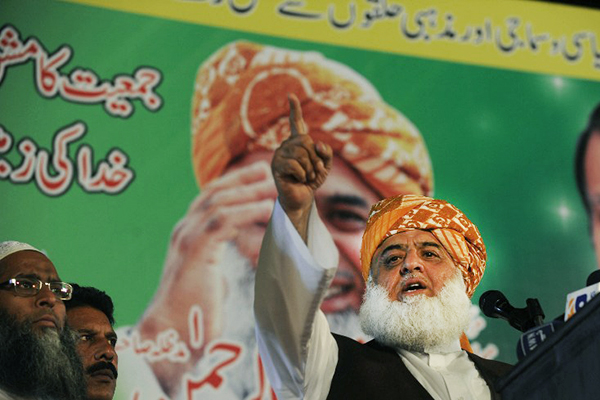
The JUI-F was established in 1988 after Maulana Fazlur Rehman split from Jamiat Ulema-e-Islam over policy differences. Originally founded in 1945 after breaking away from the Jamiat Ulema-e-Hind over the idea of Pakistan, the parts boasts a strong presence in pockets across south K-P and north Balochistan.
The party operates hundreds of religious seminaries along the border with Afghanistan and mostly recruits workers from there. The JUI-F has pledged to introduce Sharia if it ascends to power.
JUI-F has performed better than other political-religious parties in general elections. In 2002, the party won 41 NA seats with JUI-F chief Maulana Fazlur Rehman becoming leader of the opposition. In 2008, the party joined the then PPP-led coalition government. Winning 15 NA seats in the 2013 general elections, the JUI-F remained at loggerheads with the Pakistan Tehreek-e-Insaf (PTI). Both, Rehman and PTI chief Imran Khan regularly exchanged barbs over the following five years.
The JUI-F organised massive demonstrations across K-P in connection with the 2017 Elections Act controversy. Rehman told those present on one such Swat gathering in October that ‘those trying to amend the Khatme Nabuwwat (Finality of Prophethood) law were signing their own death warrants’.
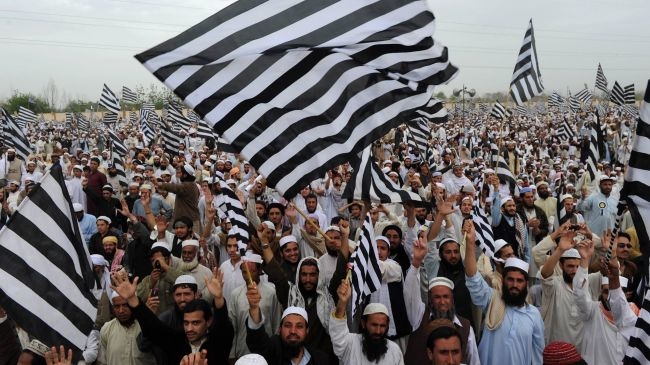
The same month, the JUI-F also opposed a proposal on the state appointing educated prayer leaders in K-P mosques terming it ‘western agenda’. The party staged countrywide protests over 2017 against persecution of Rohingyas in Myanmar.
Rehman was named Muttahida Majlis-e-Amal head in early 2018. Later in the year, party activists besieged the K-P provincial assembly in protest against the merger of Federally Administered Tribal Areas into K-P.
JUI-F does not have an active social media team and party leaders do not interact with voters on the internet. In 2017, JUI-F chief Maulana Fazlur Rehman termed social networking sites ‘harmful’. According to Rehman, the internet diverted the attention of the young from pressing issues.
Jamiat Ulema-e-Islam (Samiul Haq)
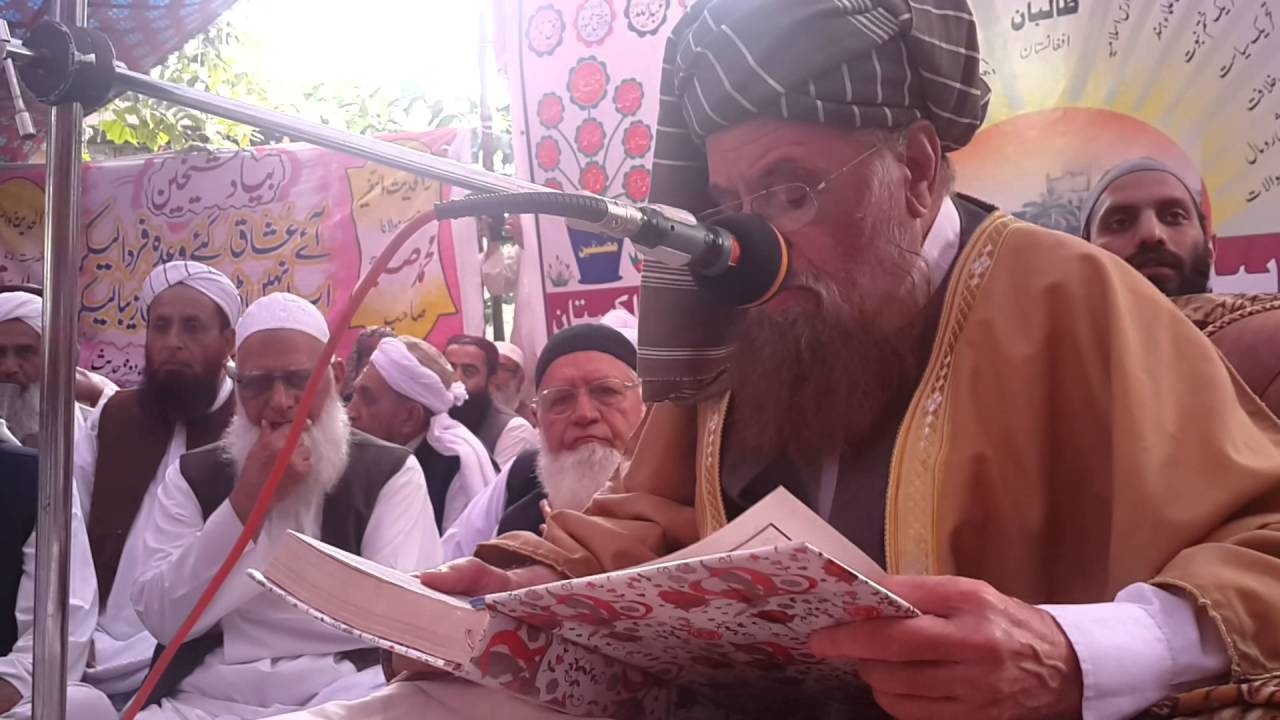
Maulana Samiul Haq, infamous as the father of the Taliban, emerged leader of the JUI-S post the 1988 party infighting. Haq served as a member of former president Ziaul Haq’s Majlis-e-Shoora and aggressively campaigned for the enforcement of Islamic law. The JUI-S claims credit for the Hudood Ordinances, Zakat and the Qisas (retribution) and Diyat (blood money) laws among others.
The party does not enjoy popular support and rarely wins any seats. In 2018, the JUI-S chief announced the party would contest elections alone after an alliance with the PTI fell through. The PTI had promised to support Haq for a seat in the Senate, but reneged on the pledge later. In February, The Express Tribune reported that the K-P government would release Rs275 million to fund construction work at Haq’s Darul Uloom Haqqania in Akora Khattak. Confronted with a strong backlash, PTI leader Arif Alvi termed the decision ‘in line with counter-terror’ efforts.
In October 2016, the JUI-S reportedly called for the abolishment of the Sindh Assembly following the passage of a bill against forced conversions. “The Sindh government is converting the province into Kafiristan with such un-Islamic decisions,” Haq said in a statement and demanded governor’s rule in Sindh.
The role of the aforementioned seminary in the assassination of former premier Benazir Bhutto has also been highlighted in several reports over 2013-18. Local press cited irrefutable evidence linking case suspects to the Akora Khattak seminary. In 2012, Haq dismissed then interior minister Rehman Malik’s remarks on the same. He should ‘prove guilt instead of levelling allegations,’ Haq said.
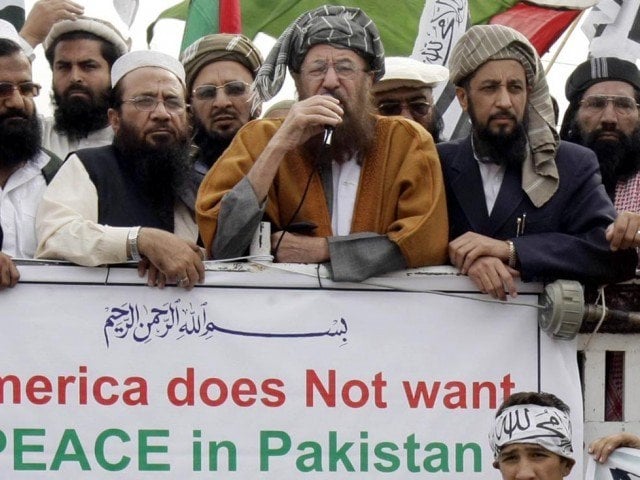
The JUI-S also continues, as in the past, to support ‘holy war’ against foreign forces stationed in Afghanistan. Its role in the Afghan war has been a matter of prestige for the party with the top tier routinely invoking the struggle against the Soviet Union.
In 2013, the JUI-S chief called former Taliban leader Mullah Omar ‘an angel-like’ human being. In 2015, Pakistani and Afghan Ulema affiliated with Darul Uloom Haqqania pledged allegiance to Mullah Akhtar Mansoor, Mullah Omar’s successor, whose election ostensibly fragmented the Afghan Taliban. The undertaking was made at an event presided over by Haq. In 2014, the JUI-S chief was appointed convener of an intermediary committee for Taliban peace talks. “I am very much hopeful. I can say with confidence that negotiations will be successful,” he reportedly said. The talks ultimately failed.
Although the party is not active on social media, the Akora Khattak seminary has an official Facebook page. The JUI-S chief also has an unofficial Twitter account, but tweets from the account are usually press releases and statements attributed to the leader are rarely posted. The seminary’s Facebook page posts Urdu updates on developments and messages from instructors. Little attention appears to have been devoted to the seminary’s bilingual web portal.
Pakistan Awami Tehreek
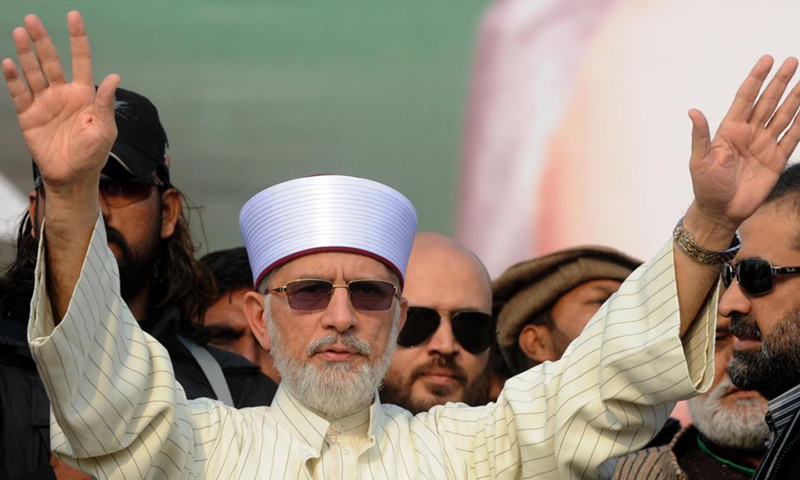
The PAT was founded by Tahirul Qadri in 1989 to ‘serve the people’. The party failed to open its tally in the 1990 general elections. In 2002, it clinched a single seat. The party, traditionally pledging to focus attention on education, economy, health and justice, boycotted the 1993 and 2008 general elections.
Qadri alternates between Pakistan and Canada since founding the movement. The party came into the public eye after the PAT chief led a long march to federal capital in 2013. A consequent sit-in concluded after the then PPP government presented assurances on reform.
Scores of PAT activists were allegedly killed by Punjab Police in the 2014 Model Town violence. Qadri hastened back to Pakistan and demanded an independent inquiry into the affair. In August, he joined forces with PTI chief Imran Khan to force then prime minister Nawaz and chief minister Shehbaz Sharif into resigning. The three-month sit-in was called-off after the 2014 Army Public School carnage.
In 2016, Qadri termed Nawaz an Indian agent, calling him a security threat. He claimed the Sharifs employed over 300 Indians of which many could have been planted. In 2017, the PAT supremo demanded the Sharif brothers be hanged over their involvement in the 2014 Model Town violence. Qadri announced the PAT would boycott the 2018 elections the following year.
The PAT boasts an extensive social media presence centred on Qadri. The cleric is followed by over 1.6 million on Twitter and 3.4 million on Facebook. PAT’s official Twitter account is followed by around 97,000 people. Its Facebook page has been liked by over 600,000. The party’s well-maintained bilingual portal is indicative of how the internet can be harnessed to bring about ‘change’
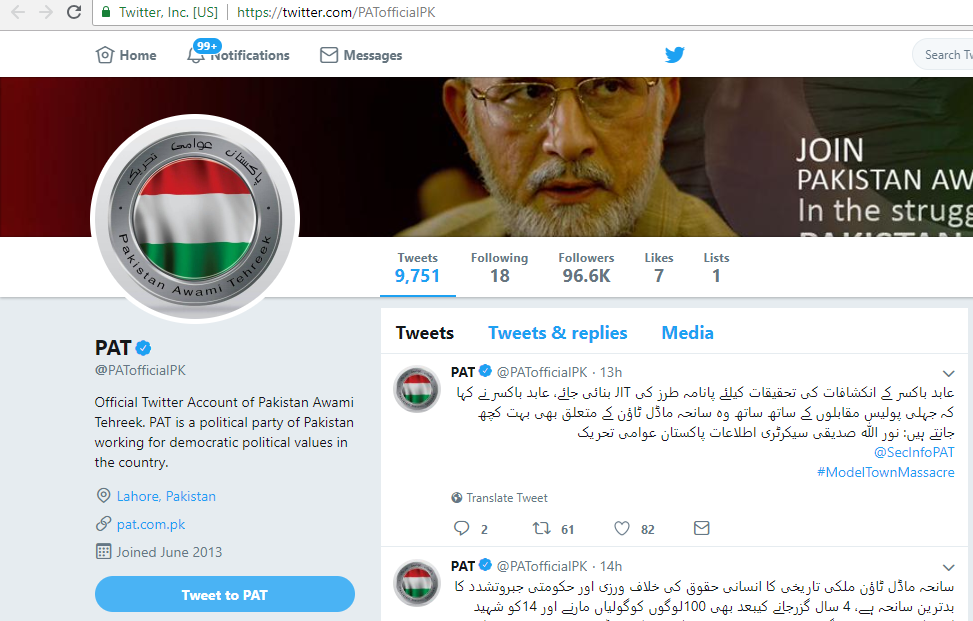
Milli Muslim League
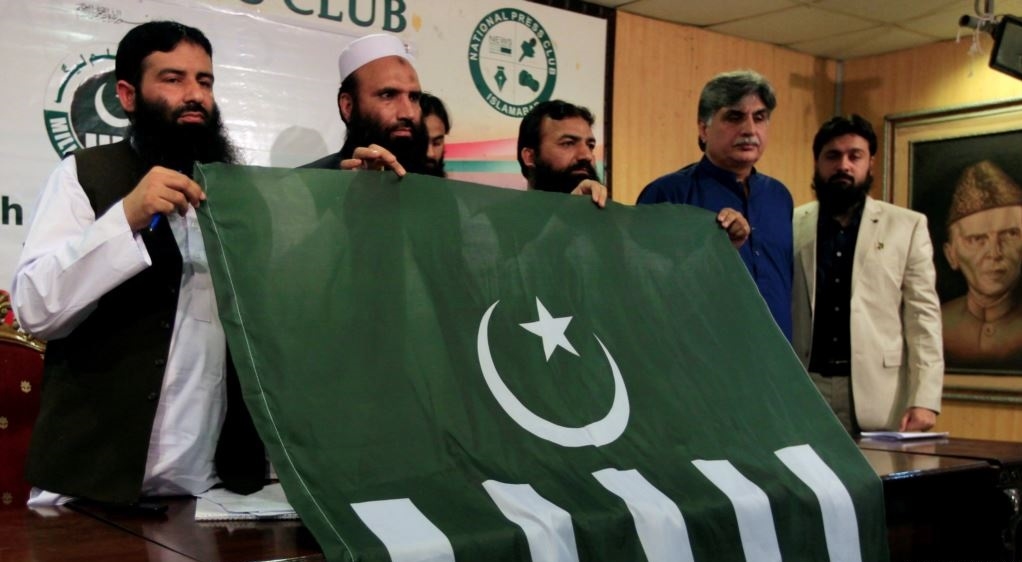
The MML, founded in August, 2017, aspires to transform the nation into a “modern Islamic welfare state”. It is commonly believed that the MML shares an embryonic relationship with the Jamaatud Dawa (JuD). Many have termed the former the JuD’s political front.
Two MML candidates, Sheikh Yaqoob and Haji Liaqat contested the 2018 NA-120 and 4 by-elections. The MML was banned by the ECP after. Later in April, the US State Department amended its designation of the Lashkar-e-Taiba (LeT), identifying Milli Muslim League (MML) and Tehreek-e-Azadi-e-Kashmir (TAJK) as LeT affiliates. Over 200 candidates contesting from the platform of the Allah-o-Akbar Tehreek were earlier affiliated with the MML. Their nomination papers have been accepted.
The MML has a nominal social media presence. Its official Twitter account is has been liked 2,600 times. Over 900 people follow the official MML Twitter handle. Separately, many pertinent pages were blocked by Facebook after the State Department amended its designation of LeT.
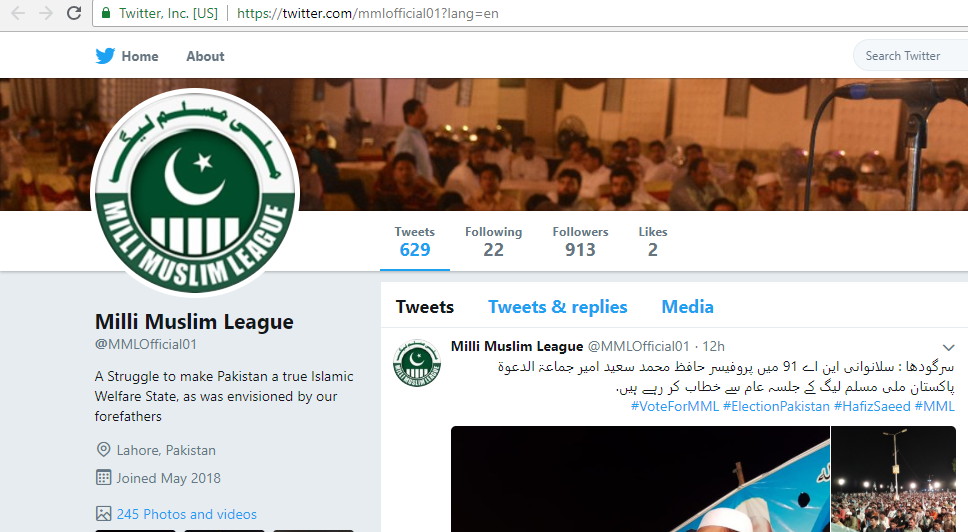
Tehreek-e-Labbaik
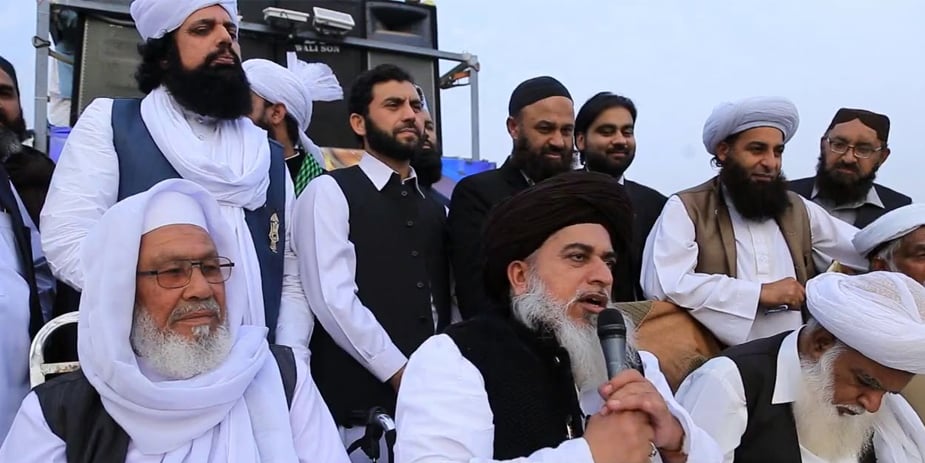
TLP was founded by preacher-turned-politician Khadim Rizvi in 2015 to secure the release of Mumtaz Qadri and have his sentence overturned. Qadri had gunned down former Punjab governor Salmaan Taseer in 2011.
The TLP’s hardline stance on the nation’s blasphemy laws has attracted a loyal following. The Rizvi-led 2017 Faizabad sit-in was representative of how quickly the party captured the imagination of many with protests spreading to other cities across the nation.
The party first forayed into the electoral arena in the October, 2017 by-elections. While the PTI retained the seat, the TLP’s Shafique Ameeni garnered a noteworthy 8,218 votes. The party’s Chaudhry Nasir Abbas also managed to poll 16,112 votes in the PP-20 (Chakwal-I) by-elections. Sheikh Azhar Hussain Rizvi, the TLP NA-120 candidate, collected 7,130 votes in by-elections organised following the disqualification of Nawaz.
A 23-year-old TLP man attacked then interior minister Ahsan Iqbal as he addressed a Narowal gathering in March, 2018. Suspect Abid Hussain confessed to targeting Iqbal over Khatme Nabuwwat (Finality of Prophethood), police claimed.
Story: Usman Kabir, Warda Imran and Hasaan Ali Khan